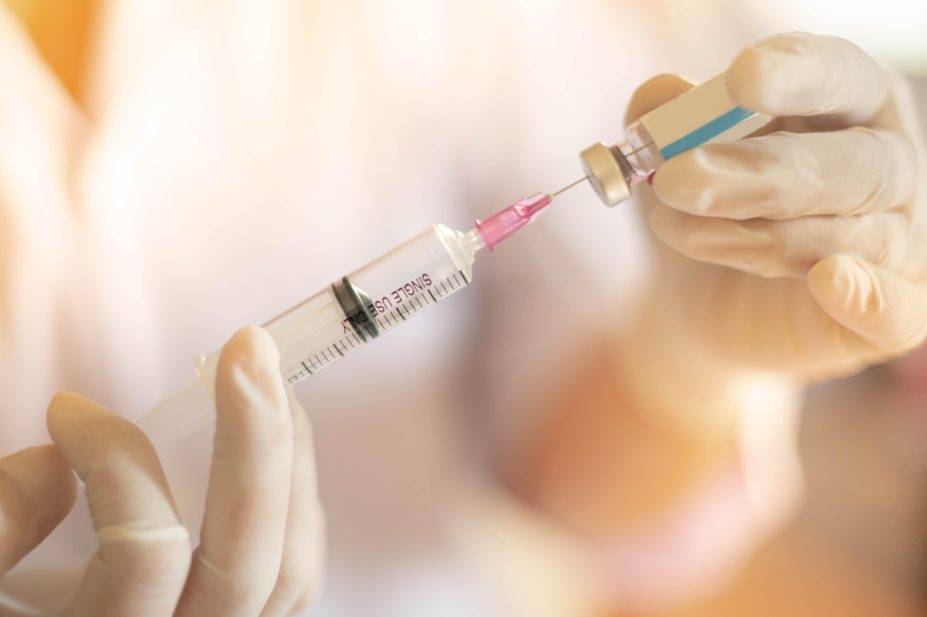
Alamy Stock Photo
Open access article
The Royal Pharmaceutical Society has made this article free to access in order to help healthcare professionals stay informed about an issue of national importance.
To learn more about coronavirus, please visit: https://www.rpharms.com/resources/pharmacy-guides/wuhan-novel-coronavirus
The UK’s COVID-19 vaccination programme will be expanded following the approval of a second vaccine, the government has said.
The Department of Health and Social Care (DHSC) announced on 30 December 2020 that the Medicines and Healthcare products Regulatory Agency (MHRA) had authorised Oxford University/AstraZeneca’s COVID-19 vaccine for use.
The DHSC also said that the Joint Committee on Vaccination and Immunisation (JCVI) had advised that one dose of thepreviously authorised Pfizer/BioNTech vaccine should be given to as many people as possible as quickly as possible.
A DHSC spokesperson said: “Having studied evidence on both the Pfizer/BioNTech and Oxford University/AstraZeneca vaccines, the JCVI has advised the priority should be to give as many people in at-risk groups their first dose, rather than providing the required two doses in as short a time as possible.
“Everyone will still receive their second dose and this will be within 12 weeks of their first. The second dose completes the course and is important for longer-term protection.
“The JCVI’s independent advice is that this approach will maximise the benefits of both vaccines.”
The Oxford/AstraZeneca vaccine needs only normal refrigeration, making it more likely that community pharmacy could play a greater role in vaccine delivery. The UK government has ordered 100 million doses, 4 million of which are expected to be immediately available.
Earlier in December 2020, hundreds of community pharmacies submitted expressions of interest to NHS England to run designated vaccination sites, according to the Pharmaceutical Services Negotiating Committee (PSNC).
NHS England was expected to announce which applications had been successful on 18 December 2020, but a spokesperson for NHS England told The Pharmaceutical Journal on 18 December that no announcement had been made.
The Royal Pharmaceutical Society’s chief scientist, Gino Martini, said: “Pharmacists working in hospitals and GP surgeries have already played an important role in getting the Pfizer/BioNTech vaccine to patients through strategic planning, distribution and roles in the preparation and administration of the vaccine.
“Now community pharmacists all over the country will be able to provide the Oxford/AstraZeneca vaccine directly to patients. One of the major benefits of the new vaccine is that it can be kept in a normal fridge, so it’s much easier to distribute and store in pharmacies.
“Pharmacists are skilled in vaccination, having provided flu jabs and travel vaccines for years. This means the NHS has a ready-made workforce waiting to play its part to scale up the Covid vaccination programme and speed up delivery of the vaccine to at-risk groups.
Alastair Buxton, PSNC director of NHS services, said: “The approval of a second vaccine, and one that has less complex handling characteristics when compared to the Pfizer/BioNTech vaccine, is a positive step. The roll-out of the vaccination programme will not be without its challenges, but community pharmacists and their teams are used to overcoming hurdles to provide the best care to their patients, so we believe their skills should be used by the NHS to help administer the tens of millions of vaccinations that will be needed to help England escape from the grip of the pandemic.”
The British Medical Association (BMA) said the authorisation of the Oxford/AstraZeneca vaccine should lead to a “step change” in the COVID-19 vaccination programme.
Chaand Nagpaul, the BMA’s chair of council, said: “While this vaccine may not have the same logistical hurdles as those associated with the Pfizer jab, the task of vaccinating such large numbers of patients in a short space of time is a huge challenge.”


